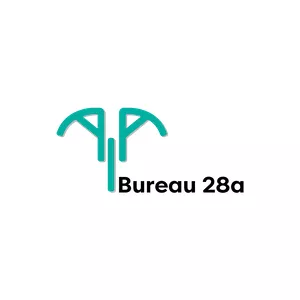Law No. 987-VIQ, On Payment Services and Payment Systems, is passed on 14 July and promulgated on 9 August 2023. The Law determines principles of regulation and control of payment systems, payment services, payment institutions, electronic (digital) money institutions, and payment system operators.
The Law introduces regulation of digital money and payments. Before the Law, only Law, On Combating Legalization of Criminally Obtained Property and Financing Terrorism, referred briefly to e-money institutions. Additionally, the Law introduces regulation of foreign payment institutions, foreign e-money institutions, and foreign operators (of payment systems).
The following definitions apply (among others):
- a payment system is a money transfer system having at least three participants and operating based on documented standardized common rules for processing, clearing, and settlement of payment transactions;
- an operator organizes, and determines rules of, operations of a payment system;
- a payment service is any of:
-
- depositing cash into and disbursing it from a payment account;
- carrying out payment transactions by credit (wire) transfers, direct debit, payment cards, and other similar payment instruments;
- issuance of payment instruments and acquiring of payment transactions;
- money transfers;
- issuance of e-money and carrying out e-money payment transactions;
- acting between upon carrying out payment transactions; and
- account information service;
- a payment institution is an entity providing all or any of the payment services excluding issuance of e-money and carrying out e-money payment transactions;
- e-money is a payment instrument existing and available to a user of a payment service electronically in the amount of funds deposited (in a fiat currency) that facilitates payment transactions and is accepted as a tender by third parties and an issuer of the e-money;
- issuance (emission) of e-money is a handover by the issuer of e-money to the user of an e-money payment system;
- an e-money holder is a user of a payment service with the right to dispose of e-money;
- an e-money institution is an entity licensed to issue e-money and carry out e-money payment transactions as well as to provide other payment services;
- a foreign payment institution, foreign e-money institution, and foreign operator is registered as, and licensed under the Law through, a local branch to carry out licensed operations;
- a payment agent is an entity or sole proprietor providing payment services for a bank, payment institution, or e-money institution; and
- a settlement agent is an entity settling payment instructions in a payment system over accounts of participants of the system.
The Law lists providers of payment services, including the Central Bank, banks, non-bank credit institutions, the national operator of postal service, (other) payment institutions, and e-money institutions.
E-money is issued by: (i) local banks and foreign banks acting through branch offices here, (ii) the national operator of postal service, and (iii) e- money institutions; in other words, only locally authorized and issued e-money would be recognized in Azerbaijan. The currency and maximum issuance amount of an issued e-money as well as the upper extent of liabilities undertaken by a single e-money issuer are determined by the Central Bank. E-money is issued and handed over to the holder immediately in exchange for the funds (in fiat currency) received by the issuer.
Local entities and sole proprietors and foreign entities acting through their branch offices in Azerbaijan can purchase and receive refunds of e- money only by transfers from/to their payment accounts. Information of every payment account that an e-money institution opens must be shared with the State Tax Service. The accounts can be opened to local entities and sole proprietors and foreign entities acting through branch offices.
Requirements applicable per the Law to payment institutions, e-money institutions, and operators (of payment systems) apply to the same extent to foreign payment institutions, e-money institutions, and operators acting in Azerbaijan through branch offices. In other words, any foreign payment institutions, e-money institutions, and operators of payment systems wishing to include Azerbaijan into their operations must so operate through branch offices and be appropriately licensed. Upon licensing, the Central Bank may contact a regulator of a respective foreign jurisdiction in relation to an applicant.
Payment service providers in Azerbaijan may make agreements with foreign payment service providers and operators provided that the foreign provider/operator is appropriately licensed and controlled, including on the AML and CFT counts, in the jurisdiction of its incorporation. Such agreements must be reported locally to the Central Bank. Apparently, there is no room for foreign e-money institutions to operate in Azerbaijan through an agreement.
Based on the concluding provisions of the Law, it enters into force within three months of its promulgation, i.e., will be effective as of 9 November 2023. Existing providers of payment services have six months until 9 May 2024 to obtain a license, enter into an appropriate register, and otherwise ensure compliance with the Law.
Originally published August 2023.
The content of this article is intended to provide a general guide to the subject matter. Specialist advice should be sought about your specific circumstances.

